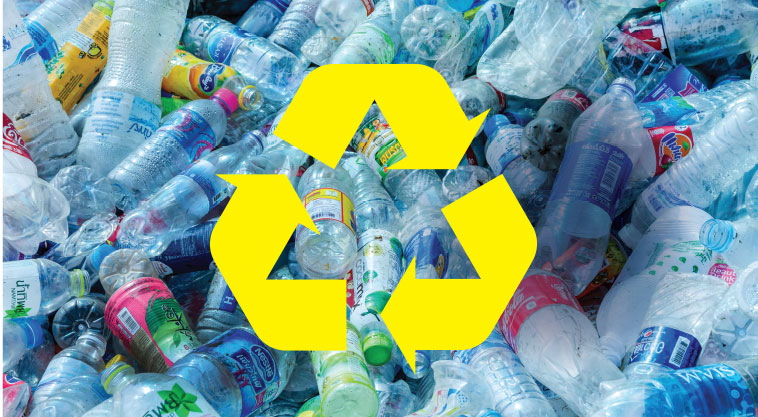One Man’s Trash


Photos: Itzik Blintzky
You’ve seen them around — they prowl the sidewalk, hovering close to the gutter or the trash bins, their seeming radar honing in on every discarded can or plastic bottle. And faster than you can blink, they bend down, scoop up their treasure, and move on.
Most people don’t pay too much attention to the bottles and cans that litter the street, and would certainly not rummage through other people’s garbage for their loot. But for some enterprising collectors, recycling means a cash windfall — and not only for poor people who need a few extra dollars or shekels in their pockets.
Last year a New York newspaper reported that a wealthy, middle-aged resident of Brooklyn’s upscale Prospect Heights neighborhood, owner of over $8 million worth of properties around New York City, has been collecting cans and bottles for over a decade, generating about $30 a day for a few hours of work. She said she doesn’t really need the money, but it keeps her active and fit, socially involved with her neighbors, and keeps the streets in her neighborhood clean. The woman, who holds an MBA from the University of Chicago and worked as a marketing analyst and a stockbroker, admits that not everyone thinks her trash-collecting hobby has value. “My family thinks this whole thing is horrible, but I think it’s so funny,” she said.
If you’re too greedy, though, all those bottles can actually cost you. That’s what almost happened to Kentucky resident Brian Everidge, who drove a truck filled with thousands of cans and bottles to Michigan — where one can earn 10 cents on a bottle, double the standard five-cent deposit refund. But before he could cash in, his truck was pulled over and he was charged with the crime of intending to return bottles that did not come from the double-refund state. And in Michigan, attempting to return 10,000 or more cans illegally — meaning they were knowingly purchased out-of-state — can result in a five-year prison sentence or a fine of up to $5,000. Luckily for Everidge, he had a good defense attorney, who argued that his client was pulled over before any crime actually happened. He claimed that hanging out in Michigan with some Kentucky bottles without actually going to the deposit center was nothing more than a “thought crime.”
While people don’t generally get rich picking up another’s trash, in Israel at least, 30 agorot (a little less than a dime) for a can and a whopping NIS 1.20 for a glass beer bottle means that with a bit of persistence, the trickle can actually add up. Although most collectors who’ve thought about getting rich on recycling have sooner or later been discouraged by the schlepping, sorting, and patience necessary until the coffers fill (not to mention the raised eyebrows), some determined souls — motivated by ahavas Yisrael and a desire to help the klal — have actually been able to finance their dreams.
Trash for Trips
Name: Yosef Drori
Number of Bottles Recycled: 80,000
Profits: NIS 24,000 (about $6,500)
Used For: A field trip for needy children
Time: 6 years
Yosef Drori is a sixth-grade rebbi in Talmud Torah Bnei Yosef in Petach Tikvah. For years already he has observed that when a class trip is announced, there are always some boys who don’t join their classmates in jumping for joy — those are the kids whose parents don’t have the money to pay.
“For my class’s annual overnight trip, the administration was only willing to subsidize a small amount, and one year I noticed several of my students didn’t come, since they couldn’t pay the cost of 340 shekels,” says Rabbi Drori. “I was so pained by the situation that I knew I had to do something about it. Of course, I could have tried to solicit donations from various sources, and I might have even been successful, but I didn’t want the kids to feel like they were miskeinim who needed handouts. So we decided to make it a group effort. We’d collect empty bottles and cans to help the children pay for the trip.”
Rabbi Drori made a list of discounts that would be offered on every trip, based on the number of bottles each student contributed. It was possible to receive a discount of up to 240 shekels for the overnight trip. And for the day trip, which regularly cost NIS 120, some boys ended up paying just ten shekels.
“I personally brought in a bunch of empty bottles from my home in Bnei Brak,” he adds, “in order to motivate the children to collect the bottles as well.”
Rabbi Drori relates that his goal was not only to help children whose parents couldn’t afford the trips, but also to teach the whole class to appreciate the value of money. “I wanted them to understand that even 30 agorot has value, and that when a person collects those small amounts many times over, they can add up to a valuable chunk of money.”
His class has been collecting bottles for six years so far, bringing in about 4,000 shekels a year. But although the temptation to rummage through garbage bins is great, the rule is that students are not to go out and look for bottles on the street.
“We don’t want the school to develop a reputation as a place where the students spend their time rummaging in garbage cans,” Rabbi Drori explains. “I tell them how to find bottles in other ways, such as asking their neighbors, holding on to the empty wine bottles from Kiddush, or collecting bottles at events.”
Rabbi Drori tells of one student whose family was extremely poor. “Whenever I announced a class trip, I could see his heart sink. But after I announced the bottle-collecting program, he was transformed — turns out he’s related to the owner of a restaurant chain who agreed to save all the empty bottles for him.
“In the end, this boy was able to finance the trips not only for himself, but for other students in his class as well. That year, no one paid more than 20 shekels for each trip.”
Coffee for the Kollel
Name: Shlomo Haviv
Number of Bottles Recycled: 466,000
Profits: NIS 140,000 (about $38.100)
Used For: A coffee room for a kollel
Time: 12 years
Shlomo Haviv was once an all-star athlete who set records on the soccer field. But for the avreichim at the kollel in the town of Yehud on the outskirts of Ramat Gan, he is simply the provider of their milk and coffee.
About 15 years ago, Shlomo became a baal teshuvah and left the world of professional sports, switching to a position in the aircraft industry.
“Twelve years ago,” he says, “I was approached by another employee who had a habit of collecting bottles. He told me he had amassed a decent sum of money, and he asked if I could give it to someone or some project that could use the funds.”
Haviv knew about a kollel that had just been established near his home in Yehud, and he decided to use the money to provide coffee for the kollel’s avreichim. He purchased sugar, coffee, milk, and a few packages of tissues and brought the items to the kollel. The avreichim were pleased, but within a few days, the supplies had been depleted.
“Then I asked myself, ‘Why shouldn’t I personally collect bottles and use the proceeds to set up a respectable coffee corner for the avreichim?’ After all, at my workplace, I watched every day as dozens of employees received their lunches along with small bottled drinks, and they all threw the bottles in the trash without giving them a second thought. Why shouldn’t I put those bottles to use?”
With that, the collection began. “I would walk around from office to office, asking all the employees for their bottles. I filled dozens of bags with bottles and stored them in a small room at my workplace. But I didn’t stop there. I began to look for empty bottles everywhere. I would go on vacation and come back with bottles. I would go out for a walk and come back home with bottles. I would go to a meeting and fill a bag with bottles on the way. Some months I managed to collect over 3,000 bottles.”
Sometimes the task became unpleasant. “Occasionally I would open the bags of empty bottles people had saved for me, and I would find leftover food, used disposable dishes, and even cockroaches. But I didn’t let resentment get the better of me. I sorted all the bottles and stored them neatly.”
Soon enough, the profits began rolling in.
“Every month, I made about eight or nine hundred shekels. In addition to providing coffee for the kollel, that money helped me provide food packages for needy families. I adopted two families, and I began sending them large packages of basic groceries every other month, which included diapers and baby formula.”
The most incredible part of this story, in Shlomo Haviv’s view, is the fact that he spent 12 years collecting bottles, while his boss turned a blind eye to his activities.
“He could have been displeased with it,” Shlomo points out, “because I spent a lot of time on it. It wasn’t at the expense of my time on the job, but it still demanded a lot of my attention. The recycling company’s truck used to come to the office, and that could also have displeased him, but he didn’t mind. In fact, he sometimes brought me bottles of his own.”
As Shlomo’s bottle-collecting activities increased, so did the Yehud kollel, taking in avreichim from the surrounding cities — Bnei Brak, Elad, and other communities — under the aegis of the rosh kollel, Rav Yeshayahu Turchin.
“All of a sudden, the kollel began needing several cartons of tissues every month,” he says. “I found myself bringing five coffee cans every week, along with five kilos of sugar, hand soap, and even assorted refreshments. I practically opened a coffeehouse in their beis medrash.”
Funds without Fundraising
Name: Avraham Baruch
Number of Bottles Recycled: Tens of thousands
Profits: Thousands of shekels
Used For: Funding youth activities
Time: 17 years
Reb Avraham Baruch has served as gabbai of Ahavah V’Achvah, a shul in Tel Aviv’s Neve Sharett neighborhood, for over 17 years. He delivers shiurim, presides over Tehillim groups, and manages activities for youths at risk.
“I always wanted to contribute more, both to the congregants and to the kids that I deal with,” he says. “But I simply didn’t have the funds to make a dent. I tried a bit of fundraising, but it wasn’t my thing, and I could never raise the amounts necessary. One time I came home after an exhausting cross-country fundraising trip and found I had barely covered the cost of my gas. I was really miserable.
“I went to speak with a rav I’m close to, telling him I just didn’t have the knack for fundraising, even though I was desperate for funds for my programs. The rav told me he himself had a problem getting funding for his projects, but he did give me a great piece of advice. He told me that today, when things are so difficult, you have to come up with alternative ideas.
“Just that day, I went to visit my mother,” Rev Avraham continues. “She has a hard time throwing out bottles, so she simply collects them. When I told her about the challenges I’d encountered in trying to raise funds, she suggested I try recycling bottles to finance the activities. I never imagined bottles could generate so much cash.”
At first, Reb Avraham used the money to pay for refreshments at the shul’s shiurim and treats for the children’s Tehillim group. The remaining money went to pay for desperately needed youth activities.
As the shul gabbai, Reb Avraham admits it was pretty easy to collect the bottles. “There are constant events being held in our shul — bar mitzvahs, sheva brachos, siyumim. As the gabbai, I would always just toss all the empty bottles left on the tables into the trash. But once I began saving those bottles, it became like a shul mission — people started bringing me their own empty bottles. Of course, I also began picking up stray bottles that I found in the street or at other events. I do have to organize the bottles and sort them into bags, which can be time consuming, but I usually devote some time to it every night after Maariv.”
Meanwhile, the money continues to roll in, even as the world of philanthropy is in crisis.
“But like my rav said to me back then, there are other ways to raise funds,” says Reb Avraham, “and sometimes those methods are right under your nose — or in your trash.”
A Quill and a Will
Name: Yom Tov Maya
Number of Bottles Recycled: 113,000
Profit: NIS 34,000 (about $9,000)
Used For: A sefer Torah
Time: 7 years
About 20 years ago, when Yom Tov Maya of Be’er Sheva experienced a personal miracle and felt obligated to give thanks for it, he decided that in honor of his yeshuah he would donate a sefer Torah.
“I didn’t have too much extra money,” he relates, “and I didn’t even know what was involved in the process of writing a sefer Torah, but I knew it was something I wanted to do.”
Around that time, Yom Tov was fired from his high-tech job after a downturn in the industry. Finding himself unemployed, he decided to study safrus, hoping it would be an independent source of income. Eventually he became a certified sofer, but although he was writing mezuzahs, it wasn’t enough for a proper parnassah.
“I was frustrated,” he says. “Here I’d gone and learned this skill, but I wasn’t making ends meet. But then it occurred to me, if this was how things had worked out, perhaps I could fulfill my dream and write a sefer Torah on my own.”
The next question, of course, was where the money would come from. “At the time, I didn’t have a penny to my name,” Yom Tov recalls. “I had been laid off, and I was drifting from one temporary job to another. Although I didn’t have to pay a sofer, since I would be writing the sefer Torah myself, the parchment and other materials still cost a lot of money. I asked a friend for advice, and he joked that I should start collecting bottles.
“At first that sounded ridiculous, but the more I thought about it, I began to come around to the idea. Why not? So I began to collect, and at the same time, I made a promise that the sefer Torah would be donated for the success of all of Klal Yisrael.”
Yom Tov picked up an empty cardboard box, labeled it “gemach,” and placed it in a closet. With that, the collecting began.
“I never actively went out to look for bottles, but it seemed like a Heavenly Hand was directing me to them. Every time I went to shul, I would find bottles or cans on the street, even if I wasn’t looking for them. True, it was a bit embarrassing to pick them up, and sometimes they were pretty dirty. But I always reminded myself that even a single letter in a sefer Torah was worth it. I began to see every bottle as another precious stone.”
Eventually, collecting bottles became part of his routine. “I managed to collect 150 to 200 bottles a week, and I went to several different places to exchange the bottles for cash. I made about 50 shekels every week like this, but I put the money into a special fund specifically for the sefer Torah.
“I have a large Subaru with a very large trunk, where I was able to pack in hundreds of bottles,” Yom Tov continues, “but it wasn’t always easy to have them in the car. One time, someone brought me a large stash of empty vodka bottles. They have a high return deposit, but they made the car stink from alcohol. Sometimes there were beer cans or bottles with residue that began to ferment. One time I got a call from a storeowner at five in the morning, asking if I wanted a large quantity of empty bottles — he told me to come right away or he’d throw them out. But these were my windfalls. I never refused an offer to come and collect bottles.”
Every year between Rosh Hashanah and Succos, Yom Tov would take all the coins out of the gemach box and exchange them for bills. He made sure to keep all that money separate in a box, instead of mixing it up with his personal funds in his bank account.
Yom Tov kept precise records of the proceeds. “The first year, in 2011, I made 2,160 shekels. The following year I earned 6,000 shekels, in 2013 I made 4,000, in 2014 I made 2,000, in 2015 it was 4,600, in 2016 it was 1,800. The next two years I really raked it in: in 2017 I made 5,000, and this past year I made 8,400.”
Yom Tov began writing his sefer Torah about two years ago. “I told myself that since the sefer was dedicated to the success of the Jewish People, I would have to have both Ashkenazim and Sephardim in mind while I was writing it. So I decided to use a plastic quill, which is acceptable by everyone, and also klaf that is universally accepted.”
He finished the sefer Torah exactly a year ago, and contacted the chareidi radio station Kol B’ramah with his story. The staff was so moved they decided to personally donate an elegant covering for the scroll. They also put him in touch with a Sephardic community in Be’er Sheva, and Yom Tov decided to donate the sefer Torah to the community’s shul and dedicate it in memory of Yaron Barami, a friend who perished in the tragic fire in the Carmel forest in 2011.
Wheels of Fortune
Name: Eitan Talkar
Number of Bottles Recycled: 33,000
Profits: NIS 10,000 (about $2,700)
Used For: A new family car
Time: About half a year
“For me, this story began about 13 years ago, when I was working as a counselor in a youth program,” says Eitan Talkar, who lives in a community in the south. “We were supposed to go on an overnight trip for a few days, but the trip was canceled at the last minute due to a lack of funding. The boys were all very disappointed, but I gave them a revolutionary suggestion. ‘If there is no funding for the trip, then let’s obtain funding ourselves,’ I told them. ‘We can do it by collecting bottles.’
“We went collecting bottles for about two years. It was an incredible period of time, with all of us contributing to the effort. We began amassing huge quantities of bottles, and we ended up receiving so much money that we were able to set out on a five-day trip to the Kinneret, with good food and a proper place to sleep.”
That was 14 years ago. Today, Talkar is a married man with five children, and he decided that if collecting bottles turned out to be so lucrative for his students, there was no reason that it shouldn’t work equally well with his own children.
“Our family had grown larger, baruch Hashem, and we needed an additional car — but we just couldn’t afford it. Then I decided to encourage my children to collect bottles, and they were very excited about the idea. For about half a year, we gathered bottles. Over time, we were joined by relatives and by many of my children’s friends, and our bottle collection became enormous.”
Talkar admits it was a bit difficult to motivate the children throughout the process, so as an incentive, each time they managed to collect a certain number of bottles, they received a portion of the proceeds.
With time, bottle collecting became part of the Talkar family routine. “We would go out on trips during the summer, and when we found empty cans, the children would stuff them into a bag. I always told my children they shouldn’t collect bottles in the street, but if they saw a discarded bottle in school, they should bring it home. We have a storage shed in our yard, and we would sort the bottles by size and type and leave them there. Once a month, the recycling company sent a truck to collect the bottles, and they deposited the money directly into our bank account. We kept this up until we had collected enough to buy a secondhand car.
Talkar says there is a basic difference between collecting as a group and collecting as a family. “The difference is that when I collected bottles with the boys in the group, we went mainly to places where we could find large quantities of bottles. We would go to Kaplan Hospital and fill our car with bottles. We also went to various hotels, where the staff knew to save all the bottles in the kitchen for us.
“With my children, on the other hand, I focused on collecting the bottles one by one. My mantra became ‘It all begins with a single bottle.’ We appreciated every bottle. Even if a relative called to tell us he had one empty bottle, I would tell him to hold on to it until I came to pick it up.”
Now that Talkar got his second car, has the family collection mission stopped?
“Not at all,” Talkar asserts. “We’re still collecting. This time, we plan to use the money for a family vacation.”
(Originally featured in Mishpacha, Issue 744)
Oops! We could not locate your form.













